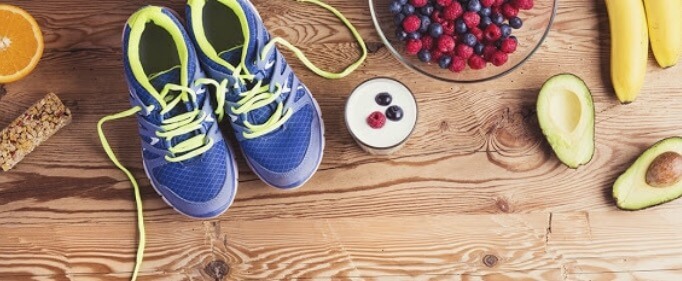
By guest blogger Andrew Hall, a Pro4mance recommended Accredited Sports Dietitian
There are certainly many benefits to including more plants, nuts, seeds and legumes in your diet. This idea is well promoted; it’s good for environmental sustainability and good for your health. Even if you aren’t vegetarian and have no plans to go that way, increasing these foods is typically beneficial for wellbeing. For example, a study investigating the diet of 785 people from varying continents, found legume consumption was associated with an 8% reduction in mortality for every 20g increase in legume intake. I could go on and list tens of such figures and benefits.
This article, however, is focussed particularly on exercise performance, recovery, and muscle maintenance for athletes, from the aspiring to the elite.
If you have, or are considering adapting a vegetarian approach, it’s important to realise that your protein needs cannot be met simply by eating tofu occasionally or throwing some chick peas into the odd salad. Human skeletal muscle is in constant flux, and unless you are strategic with your eating regimen, your muscle ‘bank account’ is going into the negative far too often. If this happens frequently impairment to exercise adaption occurs. As a result you are not maximising your chances as an athlete, I’m sorry to say. In reality, being an active individual with performance goals, and following a vegetarian diet is tough work. That is at least, until new changes become the new normal.
I’m going to reiterate a basic concept that is sometimes overlooked, we cannot store protein. Humans can most certainly store fat, and we can store carbohydrates (in our muscles and liver), but our body doesn’t have a reserve of protein…. well it does…. skeletal muscle, but that’s not a resource you should be tapping on the regular. It’s damn hard to grow lean skeletal muscle. It takes effort and consistent work. Remember that time your arm was in plaster and weeks later it came out looking weirdly more hairy and half the size? This is a good representation of how skeletal muscle maintenance is an enduring effort for the body. For this reason, daily protein intake needs to be adequate.
Appropriate dietary protein intake (~0.8 – 1.7g/kg/day for athletes) helps with manufacturing new muscle protein, red blood cells and other cellular components as part of the repair and adaptation process. When considering protein timing, research shows consistently that ‘pulsing’ protein evenly throughout the day (e.g. 4 x 20-25g complete protein) is best for promoting protein building over muscle breakdown. When considering the source that this dose of protein is coming from, however, we discover that not all proteins are created equal.
Proteins are made up of various combinations of about 20 different amino acids; the so-called “building blocks” of proteins. Eight of these amino acids are classified as essential because the human body cannot manufacture these; they must come from the diet. Animal proteins contain the full complement of amino acids however most plant proteins are missing two or three of these. Getting the full complement of “building blocks” in your diet is where the challenge can lie for vegetarians.
Fear not, it is absolutely possible to be an excelling vegetarian athlete. However, focusing on coupling the right foods at the right time remains vital. For example, low fat dairy and eggs are great exercise recovery options due to their high biological protein value. Plant based foods such as legumes, lentils, rice, cereals, and nuts contribute substantial amounts of protein to the overall diet. Yet these protein sources are incomplete and are missing some important amino acids. It is important to mix these incomplete proteins together to ensure adequate amino acid balance. That’s where your sports dietitian can be called upon to take away the guess work.
Fortunately there is a continuing trend for higher quality protein products appearing on the shelves. Higher protein yoghurts, cheeses, edamame pasta’s, and even tinned black beans are more available (saves the overnight soaking and cooking of dried beans). This allows individuals to increase protein content without the extra in increase in overall food quantity and kilojoules. Energy budget is a common challenge with vegetarian protein sources as they typically also come with noticeable carbohydrate (e.g lentils) and fat (e.g nuts) content.
The Bottom Line
All of us can benefit from eating more natural plant-based foods, however, active individuals who follow a vegetarian style of eating need to carefully structure their nutrition to best promote training adaptations and recover optimally for both subsequent exercise sessions and peak performance.
If you have any questions for or would like to get in contact with Andrew head to www.appletozucchini.com.au